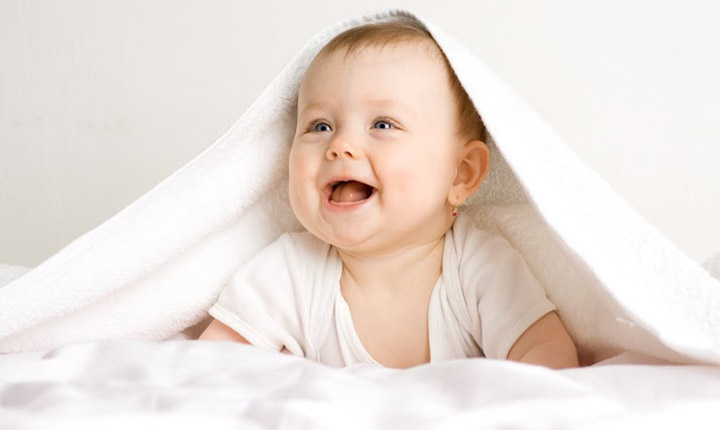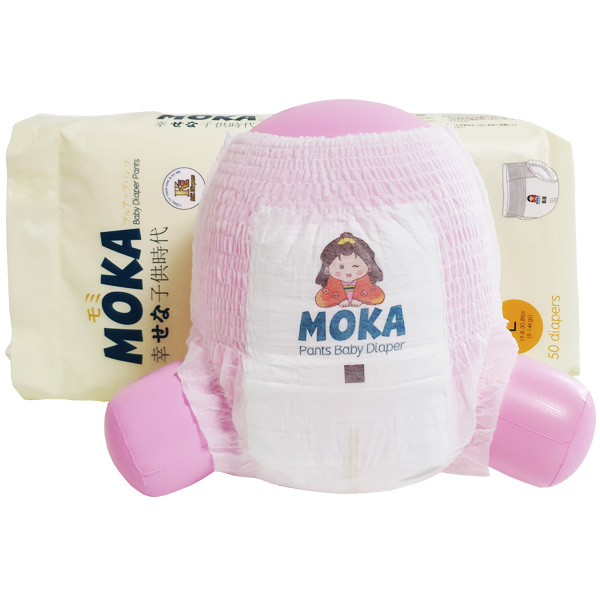
Baby Care: 7 Week Old Baby
2022-11-08 22:00
Baby Care: 7 Week Old Baby
Your baby has now transformed from a unique newborn look to more of his own unique features. Your own and your partner's genetic influence may be evident in some of their traits.
Dimpled jaws, distinctive noses, slender fingers and toes - the list of traits they share with their parents is endless. Unfortunately, we cannot predict or influence the genetic traits we want to pass on to our children. It's up to nature, and as they grow, they unfold excitingly!
Don't forget to take lots of pictures of your baby when they are still so young. Some parents take a series of photos each month to compare their baby's growth and development. Others record every little milestone in their baby book or record.
Understandably, if this is your first child, you may have more time to invest. But even if you've had kids before, try to find some time to document some of their unique qualities.

Feeding
By 7 weeks, your baby's feeding skills will develop further. They will become more efficient at sucking and swallowing and learn to eat at a pace and style that suits them. If you are breastfeeding, you may find that your supply is reduced. Your breast milk supply will depend on how often your baby feeds and how efficiently they empty the breast.
If your baby is experiencing a growth spurt, they may need more frequent feedings. Don't worry if the supply for a day or so seems low. Your supply will increase if you allow your baby to feed more frequently and make sure they are sucking properly.
If you are bottle feeding, you may increase the amount of formula you provide in each bottle. Don't forget that your baby needs formula for the first 12 months of his life. Regular milk should not be started after the first year.
Sleep
You still won't get back to your normal 8 to 10 hours of sleep. Expect your baby to have at least one longer, uninterrupted sleep cycle overnight. This is usually around 6 hours, but only if they have enough feed during the day.
Continue to follow safe sleep guidelines. Always place your baby on their back in a safe and empty crib or bassinet. Do not sleep with your baby. Keep your baby's bassinet or crib in the same room as you for at least 6 months. Safe sleep recommendations apply to a baby's first year of life.
Behavior and Develop
Now, you probably get a lot of smiles from your baby every day and few cooing sounds. Talking to your baby throughout the day is important. Even if they can't speak back yet, they will listen to you and will benefit from the stimulation.
Try to find time each day to read to your baby. They won't be overly picky about what you're reading, but your voice and rhythm will help your baby lay the groundwork for their own speech and language development. Don't forget to sing too, and recite some nursery rhymes. Your baby can only benefit from your loving interactions.
Don't forget the daily tummy time. Hopefully your baby's tolerance for this condition will increase and you'll see the benefit when they raise their head to nearly 45 degrees. Watch out for that wiggly little head though; it's hard to last long! A soft blanket is usually enough to protect their nose and face if they fall.
Crying
Your baby's cry may now be changing from a high-pitched cry to a louder, fuller cry. You'll notice that the intensity of your baby's cry also varies, depending on the cause. A tired cry is very different from a hungry cry.
Some cries are more bearable than others. Follow your own intuition and see if you feel your baby needs immediate attention. Research shows that babies who are cared for quickly tend to cry less and are more settled than babies who are left to cry.
Changing Diaper
 At 7 weeks, you can see your baby growing faster, maybe you need to change the size of your baby's diaper. If your child is 4-8kg, then he or she can start using size S diapers. If he or she grows faster than the average child and reaches about 9kg, then he can start wearing size M diapers. We think pull up baby diapers pants may be a better option for children of this weight. Because of the Tab-style baby diapers, the waistline may be much looser after the baby eats and digests. Some parents may not notice this and leaks may occur. To the contrary, pull up baby diaper pants have 360°eleastic waistband, excellent waist elasticity, perfect leak protection.
At 7 weeks, you can see your baby growing faster, maybe you need to change the size of your baby's diaper. If your child is 4-8kg, then he or she can start using size S diapers. If he or she grows faster than the average child and reaches about 9kg, then he can start wearing size M diapers. We think pull up baby diapers pants may be a better option for children of this weight. Because of the Tab-style baby diapers, the waistline may be much looser after the baby eats and digests. Some parents may not notice this and leaks may occur. To the contrary, pull up baby diaper pants have 360°eleastic waistband, excellent waist elasticity, perfect leak protection.
Routine
Your days will still be largely devoted to feeding, cuddling and caring for your baby's needs. He or she is too young to have a predictable set routine yet, but your day may have more structure.
This could be a week when you're out more and less focused on your baby. While traveling can take a lot of planning, it's worth taking a break at home. Don't underestimate the importance of having a support network of family and friends. New parents should not be isolated, they are by nature highly social creatures.
Things to Remember
Your child may make more noise this week, especially when you talk, look, or smile at them. Every time you do this, you help form pathways in your baby's brain. Your baby is like a sponge at this age, and their brains will truly be shaped by the loving interaction and care you provide them.
Pay attention to their reactions when interacting with them and be sensitive to their cues. One of the most important factors in raising emotionally healthy children is that parents will adjust to them.
Communicating with your baby is a two-way process. If your baby loses eye contact with you, looks away, or becomes fussy, take this as a sign that they need to be distracted.
No need to worry about spoiling your baby by quickly approaching them while they are crying. From now on, your baby is going through a very important developmental stage. During this time, they will learn who they can trust and who will best meet their needs.
Get the latest price? We'll respond as soon as possible(within 12 hours)















